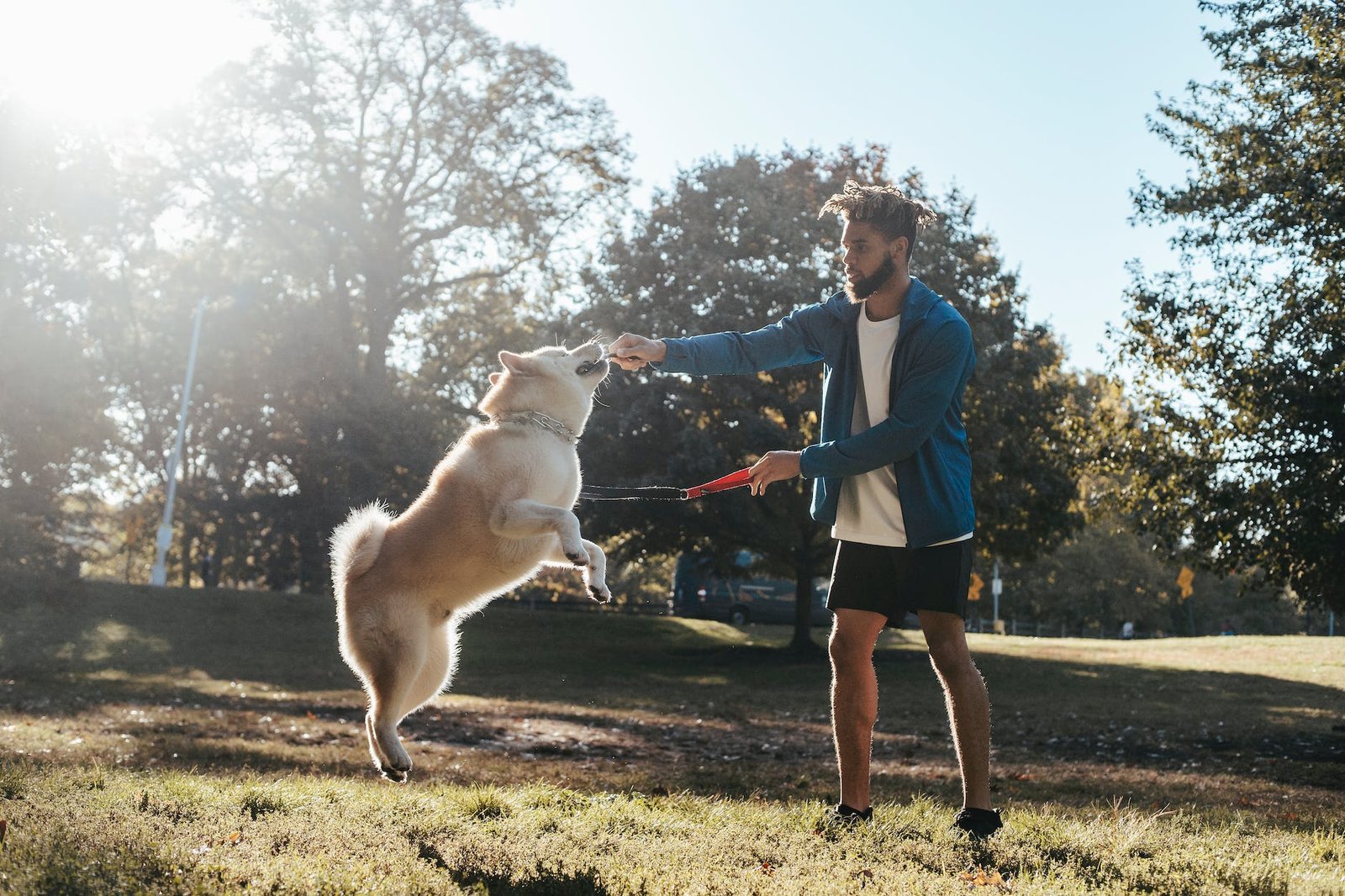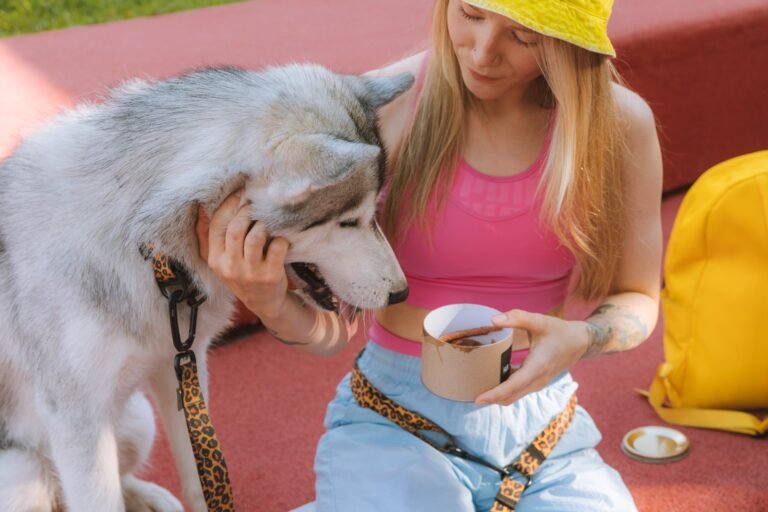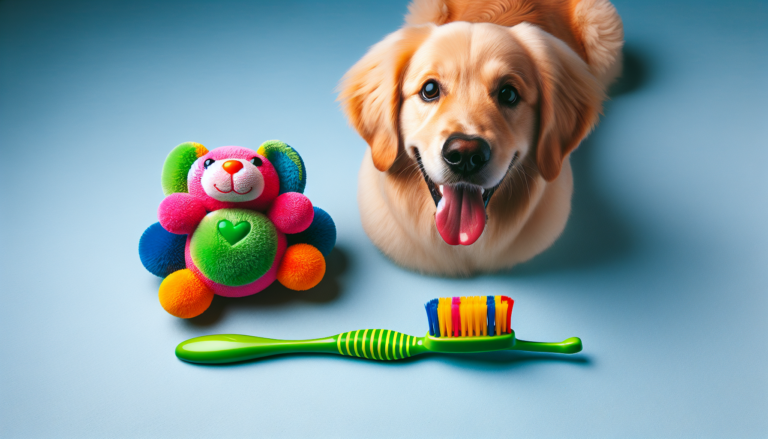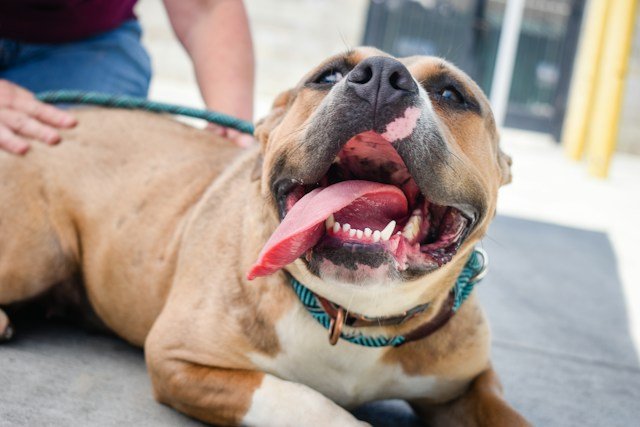Cracking the Code: Decoding Signs of a Healthy Dog
Understanding Your Dog’s Health
As a responsible dog owner, monitoring your dog’s health is essential to ensure their overall well-being. By being attentive to signs of a healthy dog, you can catch any potential issues early on and take appropriate action. Let’s explore the importance of monitoring your dog’s health and the signs that indicate your furry friend is in good shape.
Importance of Monitoring Your Dog’s Health
Regularly monitoring your dog’s health is crucial for several reasons. It allows you to detect any potential health problems before they become serious and require more extensive treatment. By being proactive, you can address issues promptly, ensuring your dog’s comfort and longevity.
Monitoring your dog’s health also helps you establish a baseline for their normal behavior and physical condition. This way, you can quickly recognize any deviations from their usual state, indicating a potential health concern. It’s important to remember that every dog is unique, so familiarizing yourself with your dog’s specific traits and habits is key.
Signs of a Healthy Dog
To determine if your dog is in good health, there are various indicators you should observe. These signs can be categorized into physical indicators and behavioral indicators.
Physical Indicators of a Healthy Dog
| Indicator | Description |
|---|---|
| Shiny Coat and Healthy Skin | A healthy dog will have a glossy coat and supple skin. The fur should be clean and free from excessive shedding, dandruff, or dryness. |
| Clear Eyes and Ears | The eyes should be bright and clear, without any discharge or redness. Similarly, the ears should be clean, odor-free, and free from excessive wax buildup. |
| Strong Teeth and Fresh Breath | Healthy teeth are clean and white, without any signs of decay or discoloration. Additionally, your dog should have fresh breath. Regular dental care is essential for maintaining good oral health. |
| Healthy Weight and Muscle Tone | Your dog’s weight should be within a healthy range for their breed and size. A healthy dog will have a well-proportioned body with visible muscle tone. Regular exercise and proper nutrition contribute to maintaining a healthy weight. Visit our article on dog weight management for more information. |
| Regular and Consistent Bathroom Habits | Healthy dogs have regular bowel movements that are well-formed and not overly firm or loose. Similarly, they should urinate regularly without any signs of discomfort or difficulty. Observing consistent bathroom habits is important for identifying any potential gastrointestinal issues. |
Behavioral Indicators of a Healthy Dog
| Indicator | Description |
|---|---|
| Energetic and Active | A healthy dog is typically lively, playful, and full of energy. They should engage in physical activities such as running, playing fetch, or going for walks. |
| Good Appetite and Hydration | Healthy dogs have a healthy appetite and enjoy their meals. They should also drink an adequate amount of water to stay properly hydrated. |
| Alert and Responsive | Your dog should be alert and responsive to their surroundings. They should react to stimuli, such as sounds or movements, without any signs of lethargy or disorientation. |
| Content and Happy Demeanor | A healthy dog exhibits a generally content and happy demeanor. They enjoy social interactions, display affection, and wag their tail when engaged. They should not show signs of aggression, excessive anxiety, or depression. |
Regular veterinary check-ups are another crucial aspect of maintaining your dog’s health. These visits allow your veterinarian to assess your dog’s overall health, administer necessary vaccinations, and provide preventive care. For more information on the importance of regular vet visits and other dog health tips, visit our article on dog health tips.
By being attentive to the signs of a healthy dog and seeking veterinary care when needed, you can ensure that your furry companion enjoys a happy and healthy life by your side. Remember to provide them with a balanced diet, regular exercise, and lots of love and attention.
Physical Indicators of a Healthy Dog
Keeping an eye on your dog’s physical wellbeing is essential for ensuring their overall health and happiness. By observing certain indicators, you can decipher if your furry friend is in good shape. Here are some key physical signs of a healthy dog:
Shiny Coat and Healthy Skin
A shiny and lustrous coat is often an indication of a healthy dog. A well-nourished coat should be smooth, free from excessive shedding, and have a natural sheen. Additionally, your dog’s skin should be clean, without any signs of redness, irritation, or flakiness. Regular grooming, a balanced diet, and proper hydration contribute to maintaining a healthy coat and skin.
Clear Eyes and Ears
Your dog’s eyes should be bright, clear, and free from discharge or redness. Watery or cloudy eyes could be a sign of an underlying health issue. Similarly, the ears should be clean, odor-free, and without any excessive wax buildup. Regularly inspecting your dog’s eyes and ears can help you spot any potential issues early on. If you notice persistent redness, discharge, or discomfort, consult your veterinarian for further evaluation.
Strong Teeth and Fresh Breath
Healthy teeth and gums are important indicators of your dog’s overall health. Teeth should be free from tartar buildup, cracks, or excessive wear. The gums should have a pink color and firm texture, without any swelling or bleeding. Additionally, your dog’s breath should be relatively fresh. Poor dental health can lead to various health problems, so it’s essential to provide regular dental care, including teeth brushing and professional cleanings when necessary.
Healthy Weight and Muscle Tone
Maintaining a healthy weight is crucial for your dog’s overall wellbeing. Dogs that are underweight or overweight may experience a range of health issues. You should be able to feel your dog’s ribs without excess fat covering them, while also observing a visible waistline when viewing them from above. If you have concerns about your dog’s weight, consult your veterinarian for guidance on dog weight management.
Regular and Consistent Bathroom Habits
Monitoring your dog’s bathroom habits is an important aspect of their physical health. A healthy dog should have regular bowel movements that are formed and easy to pass. Additionally, they should urinate without difficulty or excessive frequency. Any sudden changes in bathroom habits, such as diarrhea, constipation, or excessive urination, may indicate an underlying health issue and should be addressed with your veterinarian.
By paying attention to these physical indicators, you can assess the overall health of your dog. Regular veterinary check-ups, along with a balanced diet, exercise, and grooming routine, contribute to maintaining your dog’s physical wellbeing. For more tips and advice on keeping your dog healthy, check out our article on dog health tips and dog nutrition guidelines.
Behavioral Indicators of a Healthy Dog
When it comes to assessing the overall health of your furry friend, it’s important to consider not only physical indicators but also behavioral cues. A healthy dog exhibits certain behaviors that indicate their wellbeing and happiness. Here are some behavioral indicators to look out for:
Energetic and Active
A healthy dog is typically energetic and active. They enjoy regular physical activities and show enthusiasm when engaging in playtime or exercise. Whether it’s chasing a ball, going for a walk, or playing with other dogs, their energy levels are consistently high. Keep in mind that the level of activity may vary depending on the dog’s age, breed, and individual personality. It’s important to provide regular exercise opportunities to keep your dog mentally stimulated and physically fit.
Good Appetite and Hydration
A healthy dog maintains a good appetite and stays adequately hydrated. They eagerly approach mealtime and finish their food with enthusiasm. Additionally, they readily drink water throughout the day to quench their thirst. Keep an eye on any significant changes in your dog’s eating or drinking habits, as a sudden loss of appetite or increased thirst could be signs of an underlying health issue. If you have concerns about your dog’s nutrition, our article on dog nutrition guidelines provides helpful tips.
Alert and Responsive
A healthy dog is alert and responsive to their surroundings. They exhibit curiosity and engage with their environment by showing interest in various stimuli. Their senses are sharp, and they respond to sounds, scents, and visual cues appropriately. If your dog seems lethargic, disinterested, or unresponsive, it may be an indication of an underlying health problem. It’s important to monitor any changes in your dog’s behavior and consult with a veterinarian if you have concerns.
Content and Happy Demeanor
A healthy dog displays a content and happy demeanor. They wag their tail, have a relaxed body posture, and often wear a joyful expression. They seek companionship and enjoy spending time with their human family members. A healthy dog will also engage in social interactions with other dogs or animals in a positive and friendly manner. However, keep in mind that individual dogs may have different temperaments, so it’s essential to understand your dog’s unique personality traits.
By observing these behavioral indicators, you can gain valuable insights into your dog’s overall health and wellbeing. Remember that regular veterinary check-ups, vaccinations, and preventive care are crucial for maintaining your dog’s health. Our article on dog vaccination schedule provides useful information on this topic. If you’re interested in more dog health tips, visit our article on dog health tips. By keeping a close eye on your dog’s behavior and addressing any concerns promptly, you can ensure that they lead a happy and healthy life.
Regular Veterinary Check-ups
Regular veterinary check-ups are crucial for ensuring the overall health and wellbeing of your dog. These routine visits play a vital role in preventive care, early detection of potential health issues, and maintaining your dog’s quality of life. In this section, we will explore the importance of regular vet visits, the significance of vaccinations and preventive care, and the importance of addressing any concerns with your vet.
Importance of Regular Vet Visits
Scheduling regular veterinary check-ups is essential for keeping your dog in optimal health. During these visits, your veterinarian will conduct a thorough examination of your dog, including assessing their weight, physical condition, and overall wellbeing. Regular check-ups allow your vet to monitor your dog’s health, detect any potential issues early on, and provide appropriate preventive care.
These visits also provide an opportunity for you to discuss any concerns or observations you may have about your dog’s health. Your veterinarian can offer guidance, answer questions, and provide valuable advice on maintaining your dog’s wellbeing.
Vaccinations and Preventive Care
Vaccinations are a crucial aspect of preventive care for dogs. They help protect your furry friend from various infectious diseases that can be harmful or even life-threatening. Vaccinations stimulate your dog’s immune system to produce antibodies that fight against specific diseases.
Vaccination schedules may vary depending on your dog’s age, breed, and lifestyle. It’s important to follow the recommended dog vaccination schedule provided by your veterinarian to ensure that your dog receives the necessary immunizations.
In addition to vaccinations, preventive care measures such as flea and tick prevention, heartworm prevention, and regular deworming are essential for your dog’s wellbeing. Your veterinarian can guide you on the appropriate preventive care measures based on your dog’s specific needs.
Addressing Any Concerns with Your Vet
If you notice any unusual signs or behaviors in your dog, it’s important to address them with your veterinarian. Dogs cannot communicate their discomfort or pain verbally, so it’s crucial to be observant and proactive in identifying any potential health issues.
Whether it’s a change in appetite, abnormal weight loss or gain, lethargy, unusual behavior, or any other concerning signs, discussing them with your vet can help identify the underlying cause and provide appropriate treatment. Early detection and intervention can often lead to better outcomes for your dog.
Regular veterinary check-ups provide an opportunity to discuss any concerns you may have about your dog’s health. Remember, as a responsible dog owner, you play a vital role in observing and reporting any changes in your dog’s behavior or physical condition. Open communication with your veterinarian is key to maintaining your dog’s health and ensuring their overall wellbeing.
By prioritizing regular veterinary check-ups, vaccinations, and preventive care, you are taking proactive steps to keep your dog healthy and happy. For more tips on dog health and wellbeing, check out our article on dog health tips and dog nutrition guidelines.







